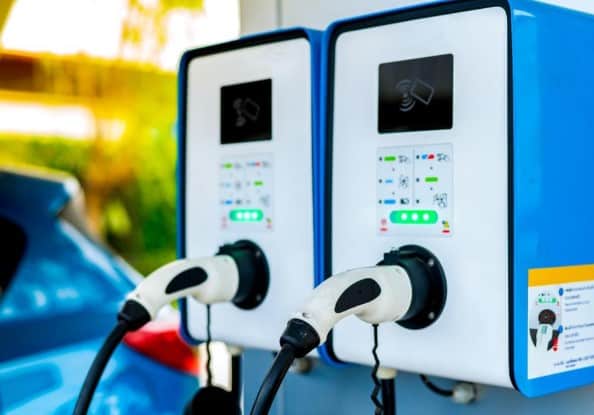
Just as the price of gasoline varies from one part of the country to another, so too does the cost of running an electric vehicle.
According to a study of gas and electricity costs in the 52 largest cities in the U.S. conducted by Crescent Electric, a daily commute in an EV costs just $54.03 a year in New Orleans. That’s compared to annual gasoline costs at $137.28 for a conventional vehicle that gets 30 mpg. Rounding out the top five cities with the cheapest electrified commutes are Salt Lake City, UT ($59.47), Louisville, KY ($60.70), Seattle, WA ($61.50), and Cincinnati, OH ($64.00).
The costliest city in which to drive to work each day in an electric car is New York City, at an average $157.16. Other cities having the most-expensive EV commutes, due to the high cost of electricity, include Atlanta, GA ($131.76), Riverside, CA ($129.85), San Diego, CA ($123.33), and Phoenix. AZ ($120.99)
The five U.S. cities where commuters save the most money annually by driving an electric car are Seattle ($212.87), Chicago ($197.23), Phoenix ($188.15), Atlanta ($184.39), and Los Angeles ($184.20). New York City motorists see the lowest average savings per year at just $55.
While that’s not exactly life-changing cash, keep in mind that the above estimates are limited to an average resident’s daily commute, which can vary by city. According to the U.S. Department of Transportation it’s a national average 15 miles each way. Those estimates don’t include weekend driving, running after-work errands, and such, so the aggregate savings of owning an EV can be greater depending how much it’s driven
According to the Environmental Protection Agency’s fuel cost calculator, a Chevrolet Bolt EV with a 238-mile range that gets the equivalent of 119 mpg will cost the average owner $550 a year to drive 15,000 miles annually. By comparison, it will cost $1,350 a year to keep a Toyota Corolla that’s rated at 32 mpg running for that many miles with gasoline priced at $2.83 per gallon. That’s an estimated difference of $4,000 over a five-year ownership period.
Still, a new electric car remains costlier to purchase than a similar gas-powered model, which can offset any savings at the pump. A 2018 Nissan Leaf EV is priced from around $30,000 to $36,000, versus just over $19,000 to about $27,000 for the aforementioned Toyota Corolla. Plus, many EV owners find it necessary to spend a few hundred dollars to have a dedicated 240-volt line installed in their garages to take advantage of much-quicker charging times.
A $7,500 federal tax credit remains in place to help sweeten the deal for EV buyers, which effectively cuts the cost of the above Leaf to around $22,500-$28,500. However, because these credits are limited to a set number of units sold per automaker, they’ll begin phasing out this year for models sold by Chevrolet (Bolt and Volt) and Tesla (Models S, X, and 3).
While a few of the latest electric cars can run for well over 200 miles on a charge, if you have a modest commute, used EVs with a range of close to 100 miles aredirt cheap on the resale market. We found several three-year-old Nissan Leafs with an estimated 84-mile range, for example, listed on Autotrader for around $10,000-$13,000 in the Chicago area, depending on the trim level. An albeit larger selection of 2015 Toyota Corollas were listed for around $13,000-$16,000.
Electric cars can further save an owner money with lower maintenance costs. Driving an electric car means being able to avoid oil changes, cooling system flushes, transmission servicing and replacing the air filter, spark plugs, and drive belts. Regular service visits are typically limited to rotating the tires and checking brake pads and other components.
At any rate, if you can live with an EV’s range limitations, Cresent Electric’s data suggests commuters in each of the nation’s largest urban areas can save money – it’s a national average $135.36 per year – by running on electricity, rather than gasoline.
